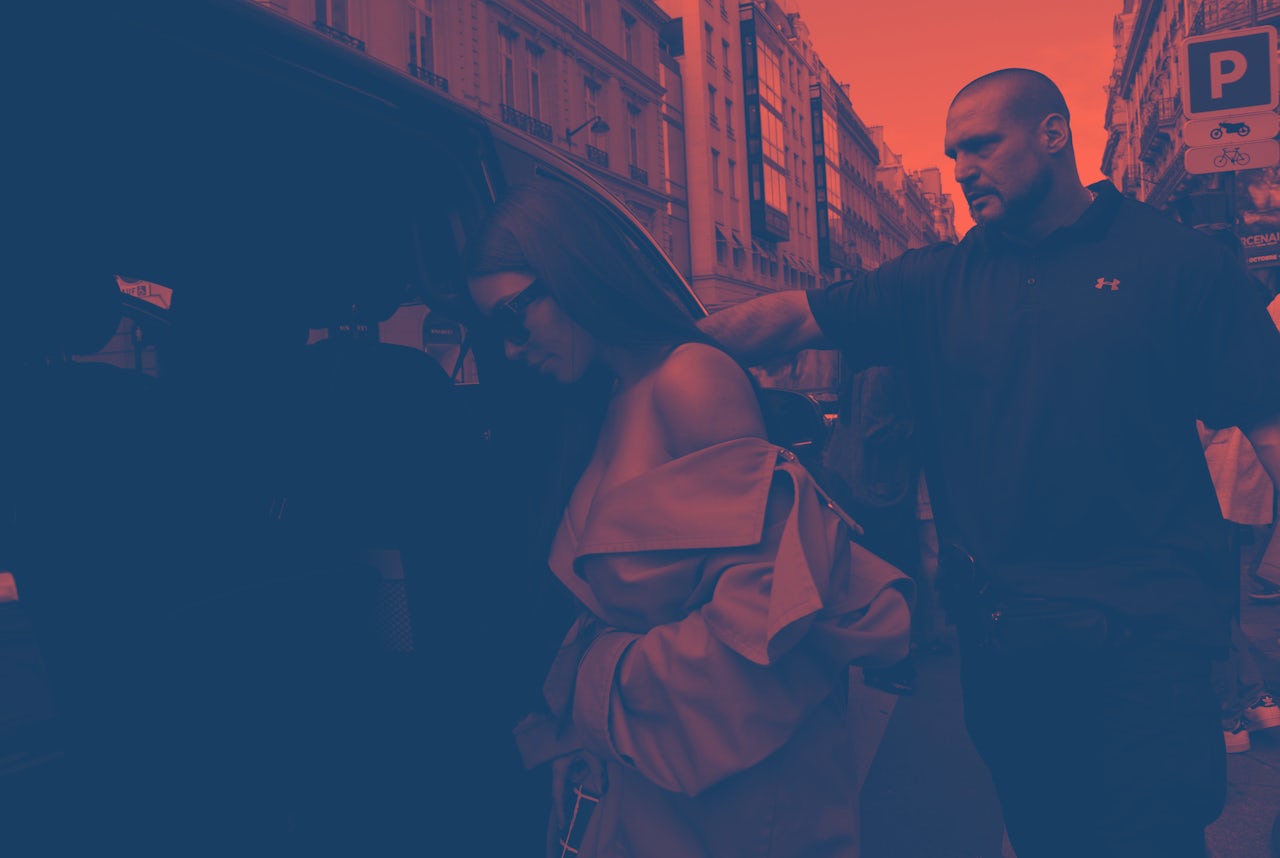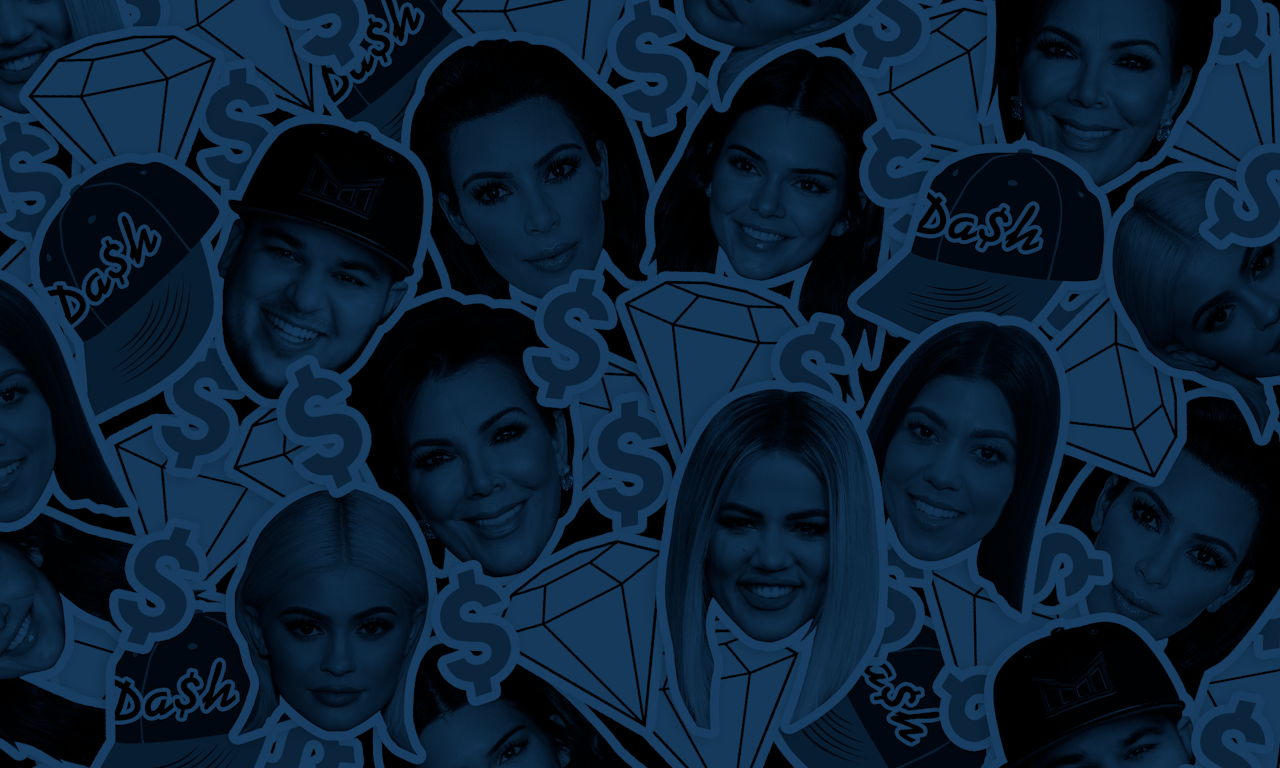You knew you were in for a different look from Keeping Up With the Kardashians when the trailer for season 13 dropped last week. In the minute-long preview, Kim recounts her violent robbery in Paris, sobbing as she says, “If the elevator doesn’t open, I’m fucked.” There is real terror in her face, reflected back in the faces of two of her sisters, who are listening. The intensity holds as the clip adds allusions to story lines about Kanye West’s breakdown and hospitalization, and Scott Disick’s self-proclaimed sex addiction.
And so Sunday night’s premiere of what promises to be a darker season positioned itself not as escapism, which viewers often sought in reality television, but as something grittier. It was instead marketed as a dramatized, super-sized projection of fear and anxiety. Though the first episode itself didn’t deliver those goods — the family and E! producers are way too savvy to give it up the first night and left us with promises of more to come — the advertising and anticipation alone told us a lot about what we want these days. A closing quote from the trailer feels almost too spot-on: “Everything has changed, but we can’t be afraid. We can’t let people scare us into not living our lives,” says Khloe.
To be very clear: The Kardashians and their co-stars are not representative of the age of Donald Trump, the travel ban and the border wall, JCC bomb threats, mass shootings, and too-frequent killings of black men by police. I won’t cheapen those problems by drawing any sort of direct links to this show. Kim’s robbery, Kanye’s breakdown, Kendall Jenner’s stalker, Lamar Odom’s recovery — those are very particular issues experienced by people whose wealth can isolate them from many of the fears of our time.
But the fact that this sort of bleakness makes for anticipated Sunday evening popcorn viewing on E!? That says something about those of us responding to this marketing. Over the past year or so, as the former star of The Apprentice ascended to the presidency and scared the hell out of vulnerable people, a more realistic, engaged tone has bled into popular culture. Cultural products like late-night comedy, sports, and reality television, which in the Obama era — and long before — served as diversions and reliable breaks from reality, are safe spaces no longer. Once upon a time, Jimmy Fallon’s celebrity hangout far outrated his edgier competitor Stephen Colbert; Derek Jeter’s apolitical blandness, upheld over a 20-year career spent refusing to weigh in on a social issue or touch any controversial topic, was praised as the paragon of athlete dignity; and KUWTK was considered fluffy fun.
Now, Americans appear to be turning away from the likes of Fallon. Elsewhere, some are debating, and in many cases admiring, NFL quarterback Colin Kaepernick’s refusal to stand for the national anthem and his support for the Black Lives Matter movement. Many still are looking forward to a Kardashian season that plunges into darkness. We are seeking out entertainment that reflects our mood, and KUWTK is savvy enough to promise it.
In fact, the show deserves credit for being ahead of the curve, having spent several years engineering what appears to be a slow pivot to more serious matters. Khloe’s fraught relationship with Odom, the troubled ex-NBA star, was a turning point, as was Kim’s relatable struggle to conceive a second child and Kourtney’s heartbreak when the father of her children proved unreliable.
Then, Bruce Jenner’s transition into Caitlyn placed the family at the center of a lightning-rod topic, and invalidated any lingering criticism that the show was vapid or without value. The Kardashian sisters, once dismissed by so-called serious folks as shallow and empty, handled their stepfather’s news with honesty and grace. In an age of anti-trans legislation — and, more recently, the case of Gavin Grimm, the transgender Virginia teen who sued for access to use the bathroom in his school that corresponds to his gender identity — this was a real contribution. This January, Kim tweeted criticism of Trump’s travel ban.
Is it all manufactured, quasi-scripted, commodified? Duh. And this season is no different, turning personal dramas and traumas into commercial television. In the Sunday night premiere of season 13, for example, Kim’s robbery was teased until the end of an hour that mostly proceeded with much lighter fare; it was followed by a more detailed trailer for next week’s episode. But for all their calculation, the Kardashians have long been more relevant than most of their contemporaries, with their smarter-than-advertised tentacles attached to so many things that wind up in the cultural bloodstream.
The O.J. trial? Check. Kanye’s genius and knack for spectacle? Check. Jenner’s remarkable journey in the public eye, at a time when the country finally took notice of the struggle for trans rights? Check. Professional sports? Social media branding? Fashion? Check, check, check. These connections, combined with the family’s own savvy, have kept them relevant for much longer than many would have predicted in 2007, and positioned them to compel us this year more than ever.
At the end of the premiere, Kim finally discusses the robbery. “They dragged me out to the hallway on top of the stairs,” she says. “That’s when I saw the gun.”
In the weeks to come, she’ll reveal more. Give it to us. We’re in a bad place, too, albeit for other reasons, and we’re ready to commiserate.

